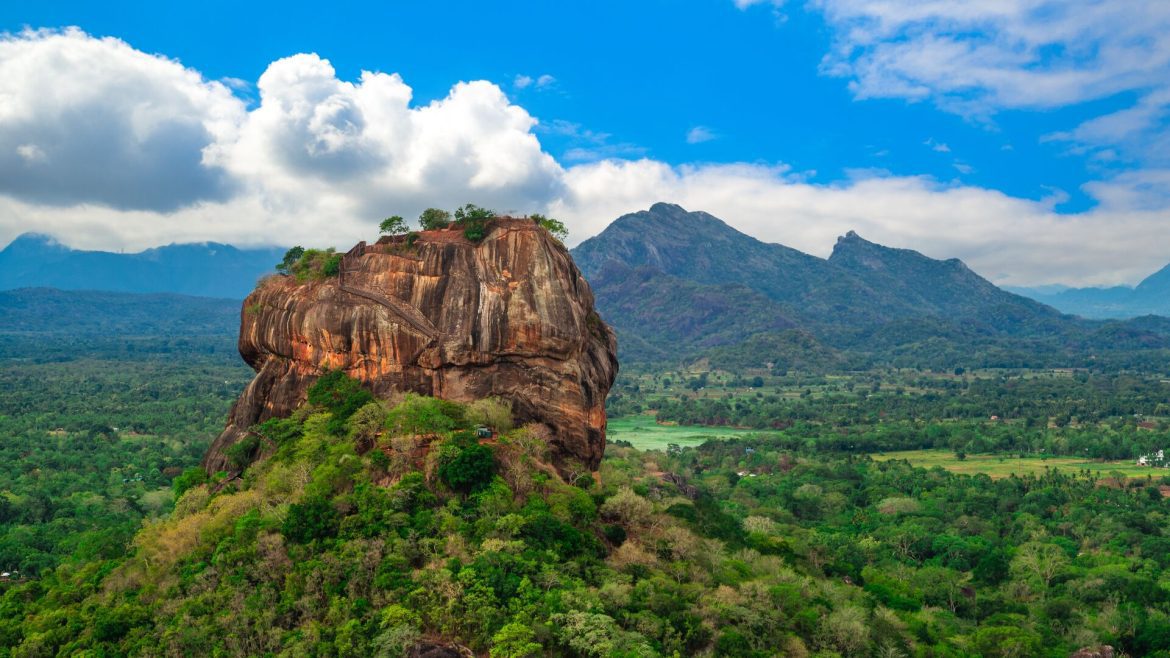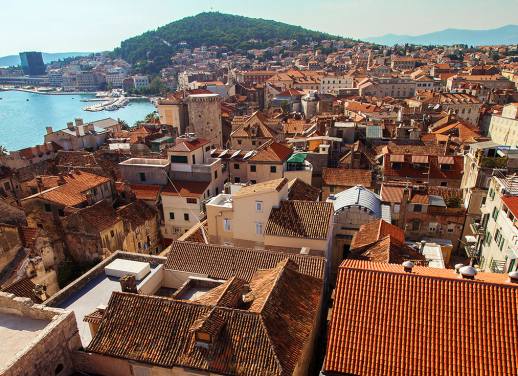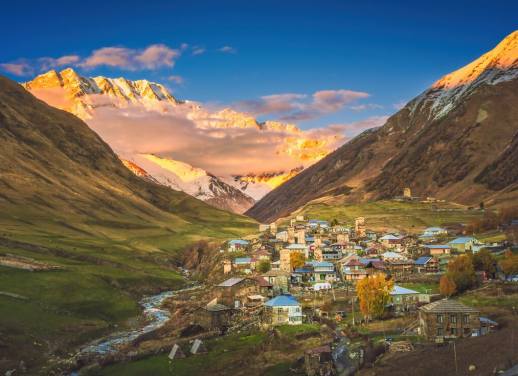In Sri Lanka, almost 250,000 tonnes of plastic waste are created annually, but more than a quarter of it isn’t collected at all. Instead, everyday items like plastic bottles, bags, straws and food packaging are typically burnt, dumped or buried on site – something Nishshanka de Silva, founder of the ZeroPlastic Movement, is on a mission to change.
It all started when Nishshanka was moving house in Colombo in 2021, and during the move he became hyper-aware that so many of the household items he was packing up were made from plastic. From there, he discovered just how much plastic waste was being created in Sri Lanka, and often not collected properly, and set out to curate non-plastic alternatives for his new home, which evolved into an online store he created to help others make the switch.
Before creating the online store, Nishshanka had worked in tech for over 18 years and, at the time, was working as university guest lecturer in the cyber security space. Within this work, he was able to speak to university students and staff members about the pollution problem he was trying to solve and encourage people to consider alternatives to plastic items like light switches, lamps, brooms or rubbish bins and make more mindful purchases.
We all want to be the voice of our generation pushing to reduce plastic.
Beyond education, Nishanka also wanted to use his site to share the work of local artisans producing alternative, non-plastic products, but felt conflicted by the pursuit of profit and use of limited resources before trying to solve the pollution problem. After six months, the site took off, but Nishshanka felt the timing of the online marketplace wasn’t right.
‘I was lecturing at universities about the plastic problem in Sri Lanka and promoting the site, but I hit a point where it felt unethical to be promoting new products without solving the [waste] problem,’ he says.
Nishshanka said that despite growing interest from students and volunteers wanting to help contribute to positive change, he made the call to shut down the site, but his story was only getting started. Not long after, he registered the ZeroPlastic Movement as a not-for-profit in 2022 and pivoted to help solve the pollution problem.
Today, Nishshanka tells me that the ZeroPlastic Movement is Sri Lanka’s largest volunteer-driven environmental initiative, with over 11,000 members working together to fight plastic pollution through large scale group clean-ups and education sessions at universities and community-run projects. ‘It’s a generational thing, and we all want to be the voice of our generation pushing to reduce plastic,’ said Nishshanka.
More people, more impact, less plastic
Nishshanka explains that the problem is threefold. The first part, he says, is education and the lack of understanding or awareness about waste management on a personal level. Then, there are the infrastructure and waste management challenges that leave rural areas out of the picture. Lastly, Nishshanka explains that plastic items – bags, containers, household objects – are typically favoured because of their lower cost and durability, and so people continue buying them.
With tackling this three-part problem in mind, the ZeroPlastic Movement has been quickly building momentum. Today, it unites thousands of volunteers in Sri Lanka who participate in rubbish collection projects and community-based events.
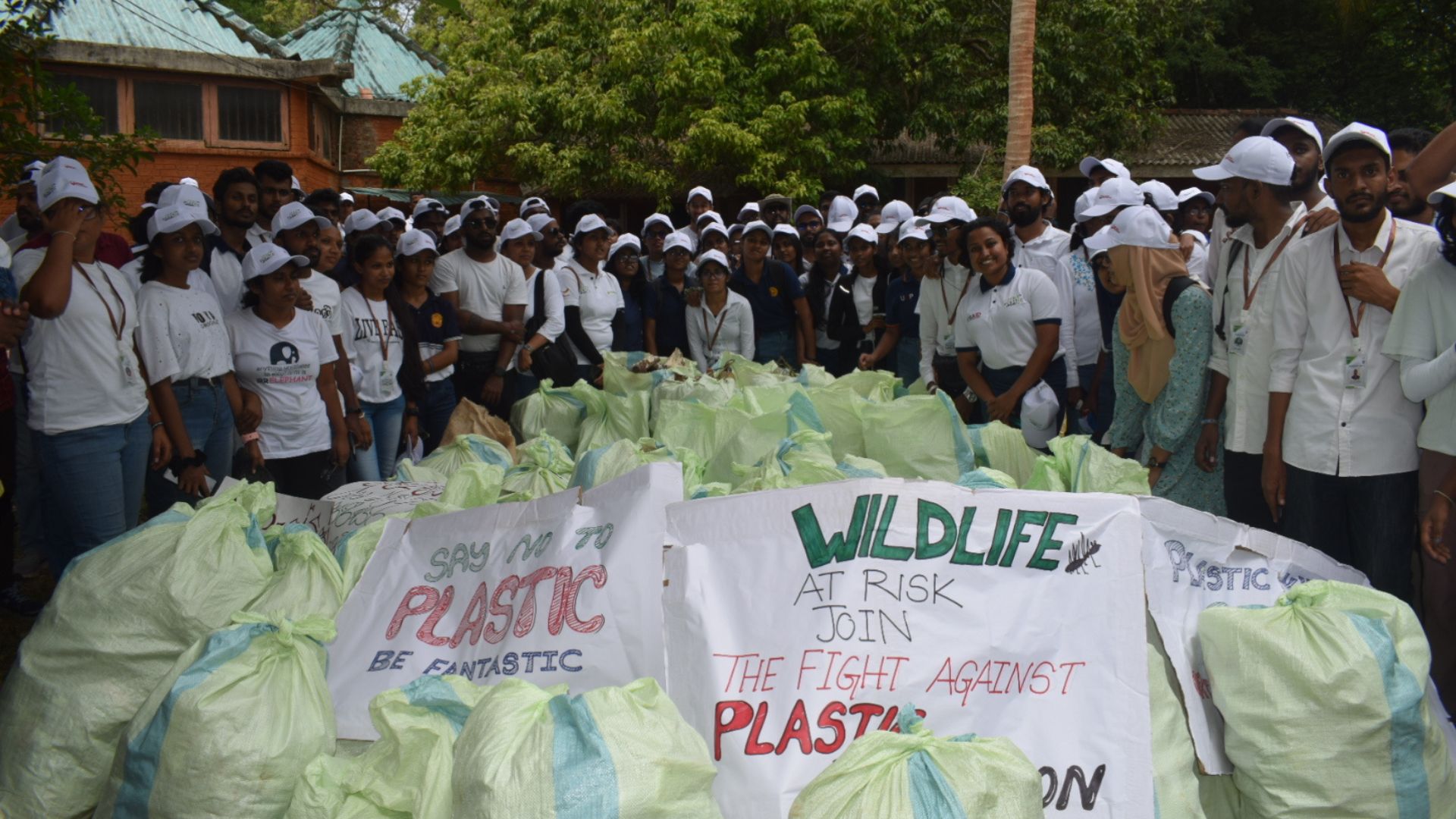
At one of these events, the ZeroPlastic Movement caught the attention of Poornaka Delpatricha, the general manager of Intrepid Sri Lanka.
‘As soon as we met Intrepid, I knew there was alignment, and I knew it aligned so well with my purpose,’ Nishshanka says.
Not long after, the ZeroPlastic Movement became a partner of The Intrepid Foundation and they launched their first joint project in Sigiriya.
Bringing travellers into the solution
Sigiriya (Lion Rock) is one of the country’s most recognisable landmarks, but plastic pollution poses a massive threat to both the area’s environment and wildlife – including the elephants that call it home. Locals and visitors play a part in keeping Sigiriya clean, however a lack of infrastructure stood in the way.
‘Think of hundreds of travellers visiting every day, and everyone brings their rubbish and just leaves it at Sigiriya, and all the recyclable waste goes into landfill when it all gets mixed together,’ he says.
Together, the two organisations set out to change this and introduced the first ZeroPlastic rubbish bin to Sigiriya.
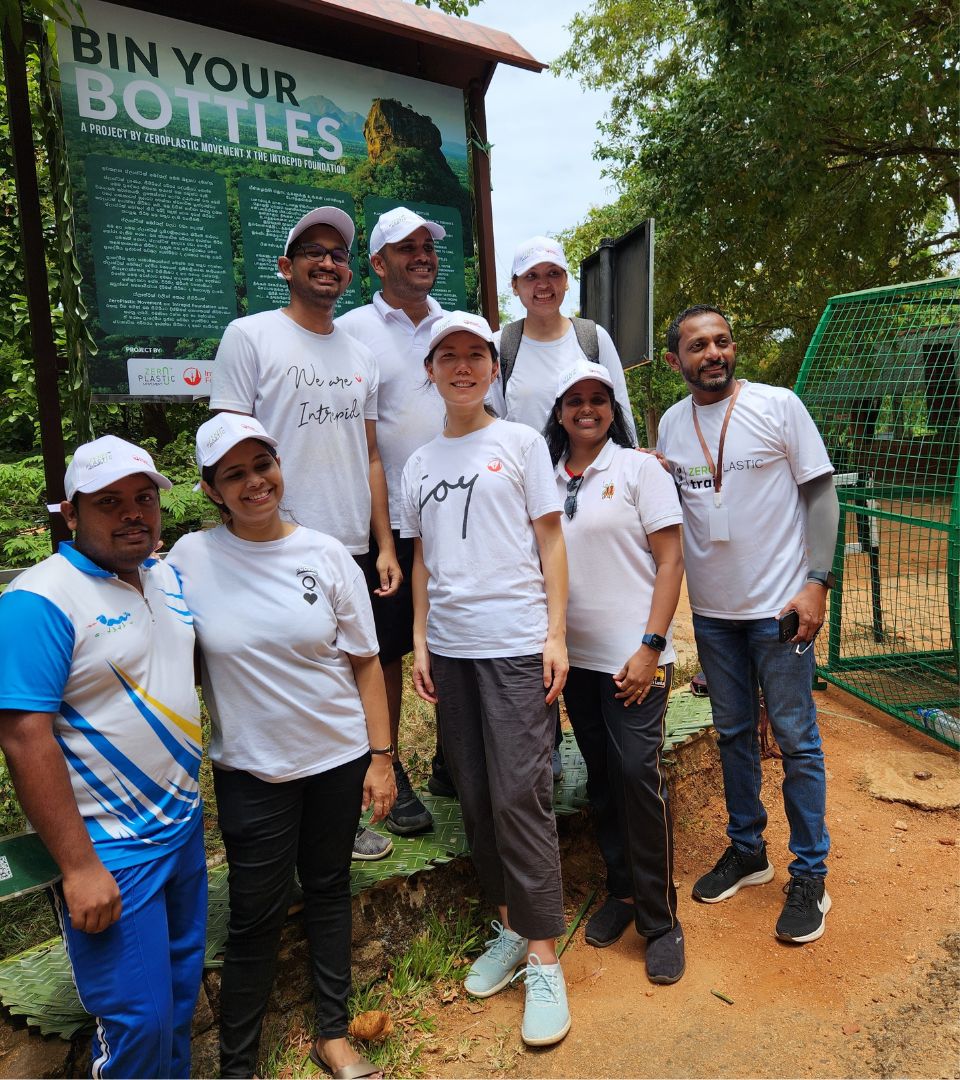
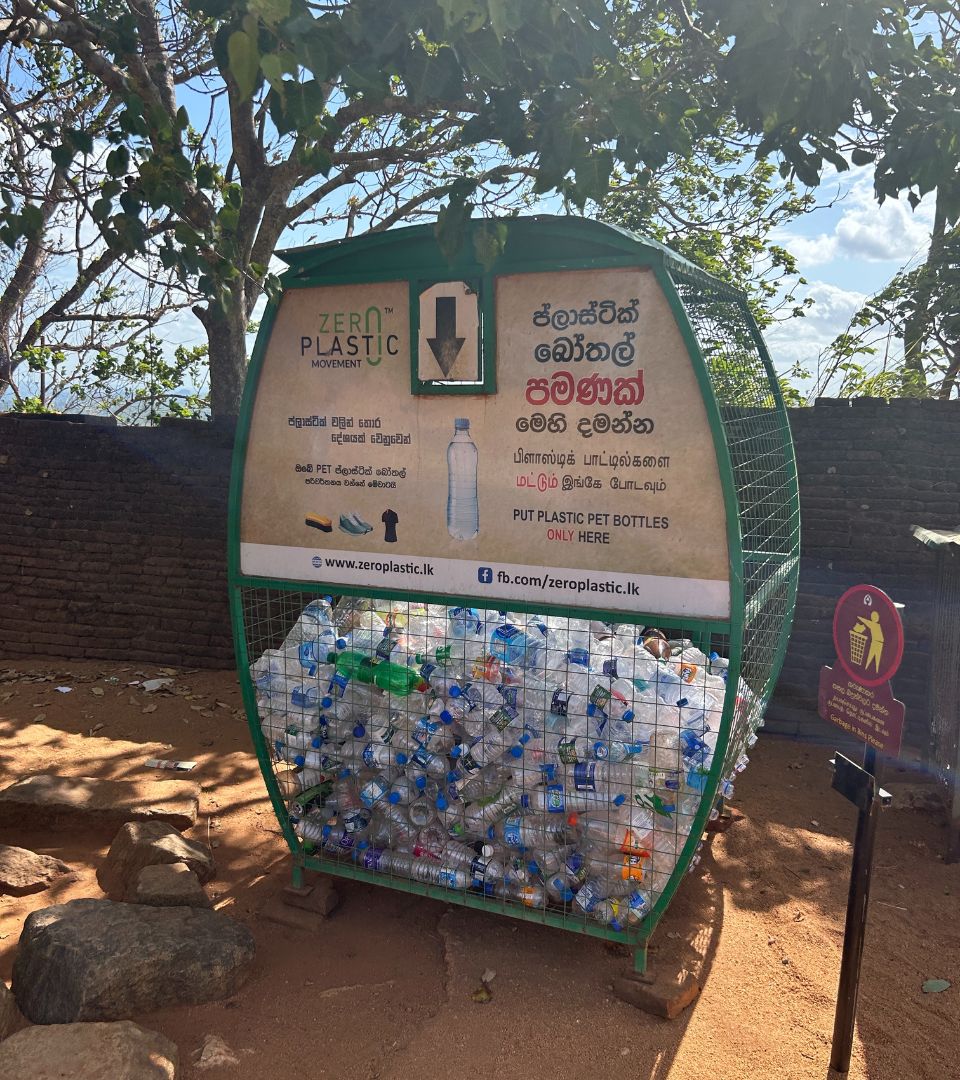
These bins – large, cage-like structures – are created as a dedicated site for recycling plastic bottles. While it sounds simple, Nishshanka explains that the receptacles are only a part of the project. In smaller towns like Sigiriya, regular waste management dumps everything – including recyclables – into landfills. In ZeroPlastic’s model, each bin is ‘owned’ by a local family who is responsible for collecting and safely storing the bottles at home.
‘Once they have collected one tonne, ZeroPlastic sends an independent recycling collective truck to visit the home of the bin owner,’ Nishshanka says.
ZeroPlastic pays the ‘bin owner’ for each bottle collected. The plastic is then sold to local clothing factories and turned into yarn that is used to create t-shirts.
The road to the future
In 2023, 400 people visited Sigiriya on the ZeroPlastic Trail, an organised event to celebrate the launch of the new bins in partnership with The Intrepid Foundation. Elsewhere in the country, over 4000 people joined local walks to collect waste.
Those numbers continue to grow, with Nishshanka proudly reporting over 11,000 volunteers joined the 2024 ZeroPlastic Walk to Galle to celebrate a new ZeroPlastic bin added to the Galle community.
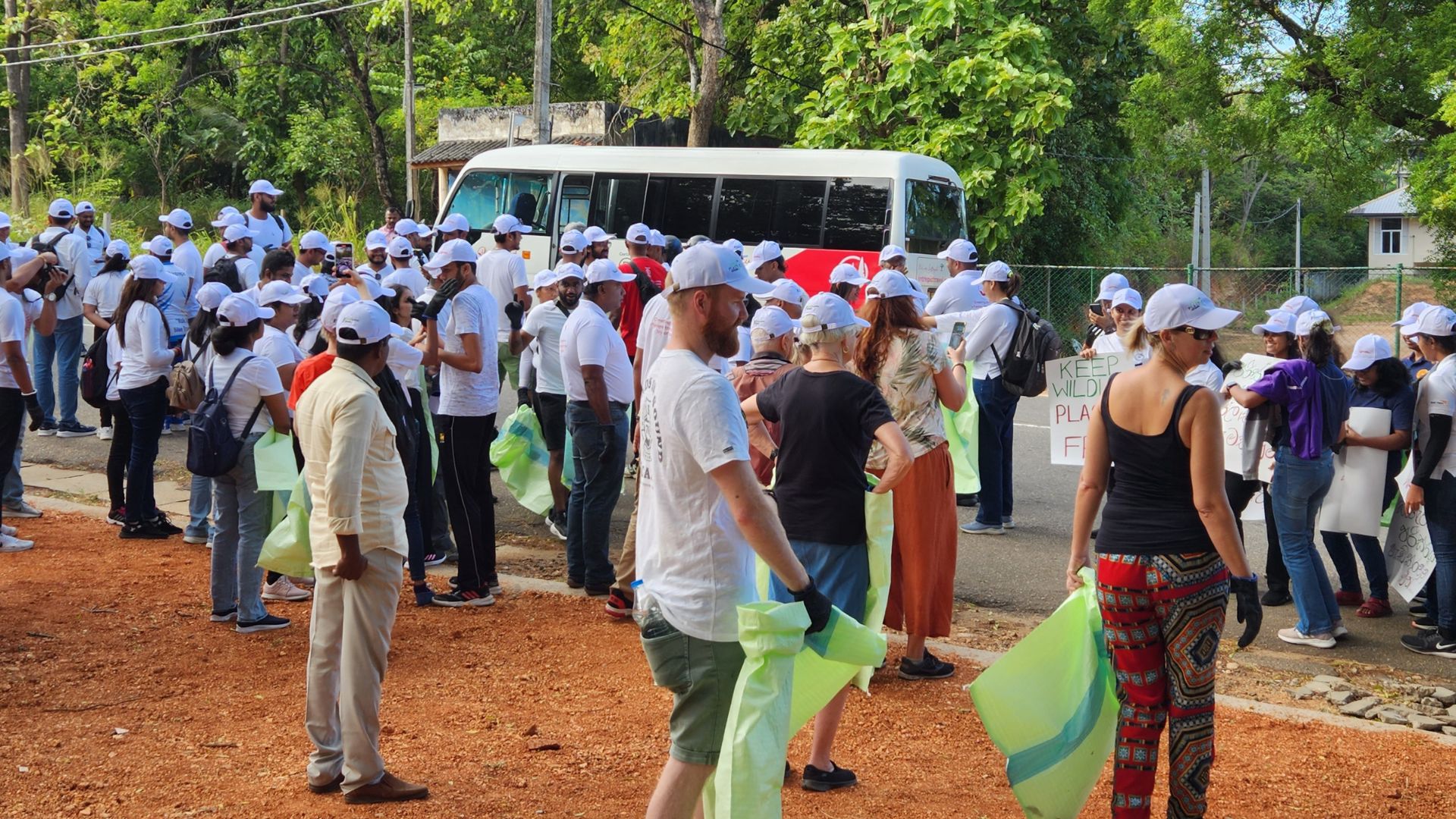
In October, the ZeroPlastic Movement was awarded a $50,000 impact grant from The Intrepid Foundation. So, what’s next? Nishshanka has a vision for more ZeroPlastic bins across the country, and now that he feels like he’s doing something to solve the problem, he can get back to one of his earlier dreams – building a hub for artisans to sell hand-crafted objects.
Already, there is a small, section on the ZeroPlastic Movement’s website site that sells goods like bamboo toothbrush holders or cane-woven bin covers. Nishshaknka explains how artisans across the country find it challenging to compete against the cost and availability of plastic-made items compared to the price of their hand-made items. He hopes to encourage and support the culture of making and sharing items from generation to generation.
With funds from the impact grant, Nishshanka plans to create a community hub in Weweldeniya – a village known for producing bamboo and cane items. His vision for the hub includes creatinga multi-purpose space with a retail store, artisan workshop and shared spaces for the community.
He wants to encourage people to reconsider the number of plastic items they buy and support local artisans in breaking the cycle of plastic consumption. And that’s where the future of ZeroPlastic becomes a circular one – going back to where it started to continue creating a plastic-free Sri Lanka.
Learn more about ZeroPlastic Movement and find your own responsible Intrepid trip in Sri Lanka.

